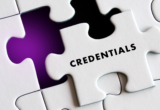
Streamline Your Healthcare Practice with Efficient Medical Credentialing
In today’s fast-paced healthcare industry, efficiency is key. Healthcare providers need to ensure that their practices are running smoothly and effectively in order to provide the best possible care for their patients. One area where efficiency is crucial is medical credentialing. The process of verifying and evaluating the qualifications and experience of healthcare professionals can be time-consuming and complex. However, with the use of efficient medical credentialing software, healthcare practices can streamline this process and save valuable time and resources.
The Importance of Efficient Medical Credentialing
Medical credentialing is a critical process that ensures healthcare providers have the necessary qualifications and experience to deliver high-quality care to patients. It involves verifying a healthcare professional’s education, training, licensure, and work history. Without proper credentialing, healthcare practices run the risk of hiring unqualified individuals who may not have the necessary skills or knowledge to provide safe and effective care.
Efficient medical credentialing is essential for several reasons. Firstly, it helps healthcare practices comply with regulatory requirements and accreditation standards. Many healthcare organizations are required to credential their providers in order to receive reimbursement from insurance companies or to maintain their accreditation status. Failure to meet these requirements can result in financial penalties or loss of accreditation.
Secondly, efficient medical credentialing helps ensure patient safety. By thoroughly vetting healthcare professionals, practices can minimize the risk of hiring individuals with a history of malpractice or disciplinary actions. This, in turn, protects patients from potential harm and helps maintain the reputation of the healthcare practice.
Common Challenges in Medical Credentialing
Despite the importance of medical credentialing, the process can be fraught with challenges. One of the main challenges is the sheer volume of paperwork involved. Healthcare providers often have to gather and submit numerous documents, including transcripts, diplomas, licenses, certifications, and references. Managing all this paperwork manually can be time-consuming and prone to errors.
Another challenge is the need to navigate through various regulatory requirements and credentialing standards. Each state and accrediting organization may have different guidelines and criteria for credentialing healthcare professionals. Keeping up with these requirements and ensuring compliance can be overwhelming, especially for larger healthcare practices with multiple providers.
Additionally, the credentialing process often involves coordination with external organizations, such as licensing boards and educational institutions. This can further complicate the process and introduce delays, as healthcare practices have to rely on these organizations to provide the necessary documentation in a timely manner.
Streamlining the Medical Credentialing Process
To overcome the challenges of medical credentialing, healthcare practices can turn to efficient medical credentialing software. This software automates and streamlines the entire credentialing process, from initial application to ongoing monitoring and re-credentialing.
One of the key features of efficient medical credentialing software is a centralized database that stores all provider information and documents in one secure location. This eliminates the need for manual paperwork and allows healthcare practices to easily access and update provider information as needed. Furthermore, the software can automatically verify and validate credentials, saving time and reducing the risk of human error.
Another important feature is the ability to track and manage the status of credentialing applications. Efficient medical credentialing software provides real-time visibility into the progress of each application, allowing healthcare practices to identify and address any bottlenecks or delays. This helps ensure that providers can start practicing as quickly as possible, reducing the time between hiring and patient care.
Efficient medical credentialing software also simplifies the process of staying compliant with regulatory requirements and accreditation standards. The software can be programmed to automatically monitor and alert healthcare practices of any upcoming deadlines or expiring credentials. This proactive approach helps practices stay on top of their credentialing obligations and avoid penalties or loss of accreditation.
Best Practices for Medical Credentialing
While efficient medical credentialing software can significantly streamline the process, there are some best practices that healthcare practices should follow to maximize its benefits. Firstly, it is important to establish clear credentialing policies and procedures. This ensures consistency and standardization throughout the credentialing process, making it easier to track and evaluate providers.
Secondly, healthcare practices should regularly review and update their credentialing criteria. As medical standards and regulations evolve, it is important to ensure that the credentialing process reflects these changes. This may involve revising the required qualifications, adding new criteria, or updating the documentation requirements.
Additionally, healthcare practices should prioritize ongoing monitoring and re-credentialing. Credentialing is not a one-time process; it should be an ongoing practice to ensure that providers maintain their qualifications and continue to meet the standards of the healthcare practice. Efficient medical credentialing software can automate this process by sending reminders and notifications when re-credentialing is due.
The Future of Efficient Medical Credentialing
As technology continues to advance, the future of efficient medical credentialing looks promising. Artificial intelligence and machine learning algorithms can be utilized to automate the verification and validation of credentials, further reducing the need for manual intervention. This can significantly speed up the credentialing process and improve accuracy.
Moreover, interoperability between different healthcare systems and databases is an area of focus for the future of medical credentialing. By seamlessly exchanging data between healthcare practices, licensing boards, and educational institutions, the credentialing process can become even more efficient and streamlined.
In conclusion, efficient medical credentialing is crucial for healthcare practices to ensure patient safety, comply with regulatory requirements, and maintain their reputation. By implementing efficient medical credentialing software and following best practices, healthcare practices can streamline the credentialing process, save valuable time and resources, and focus on providing high-quality care to their patients.
Implement efficient medical credentialing software in your healthcare practice today and experience the benefits of streamlined credentialing. Streamline your healthcare practice with efficient medical credentialing software now!



